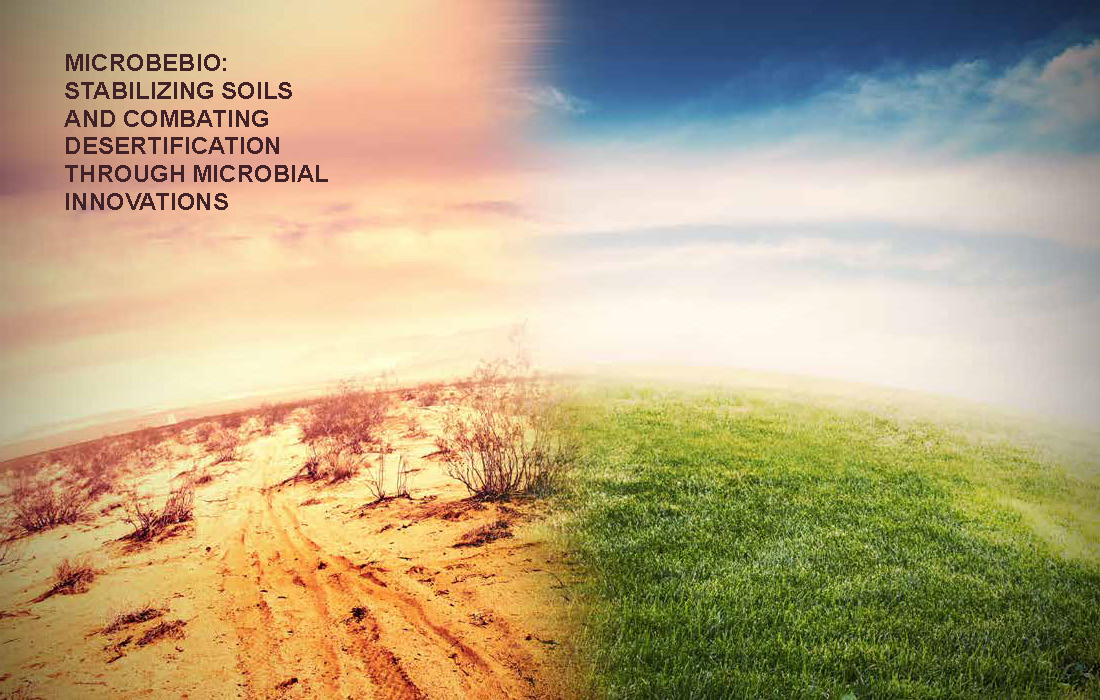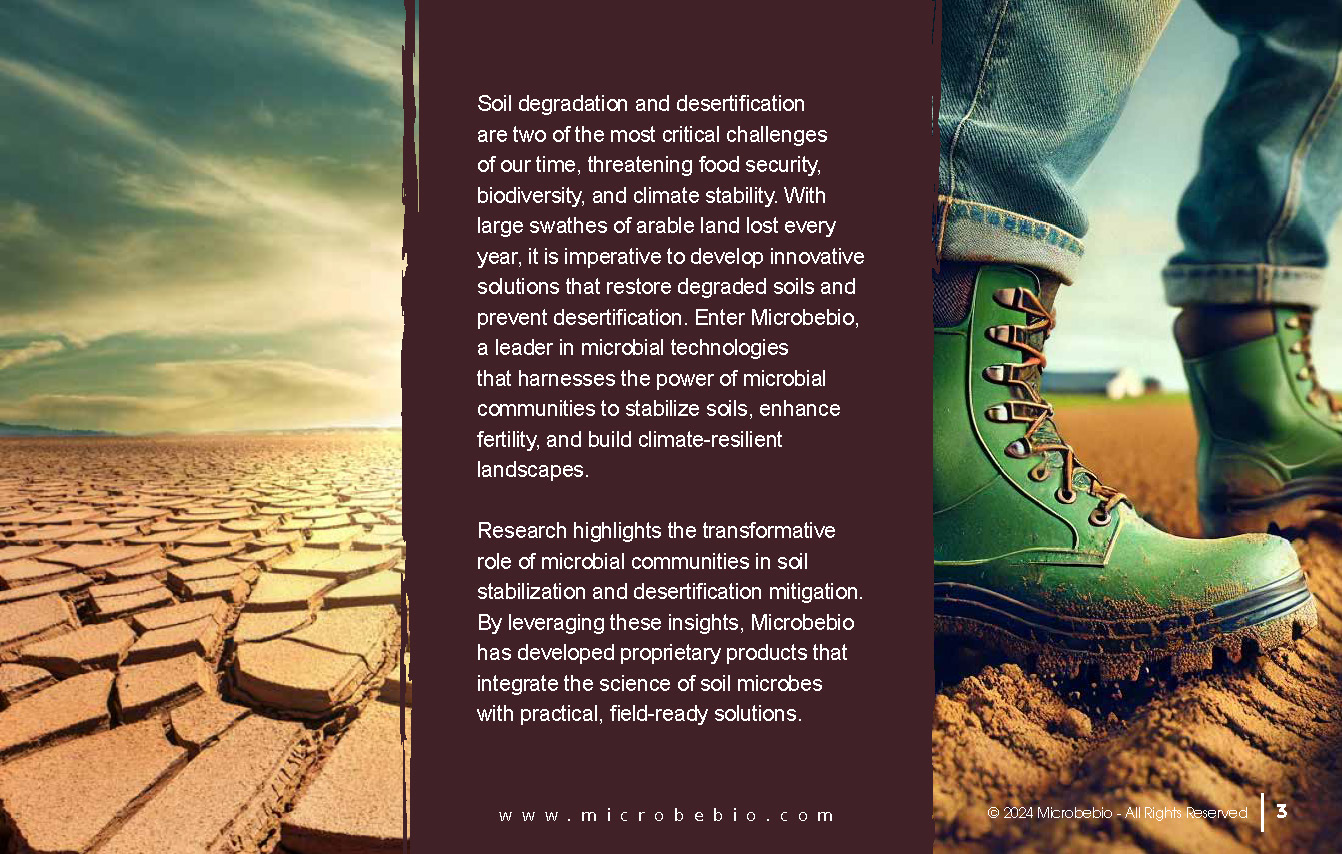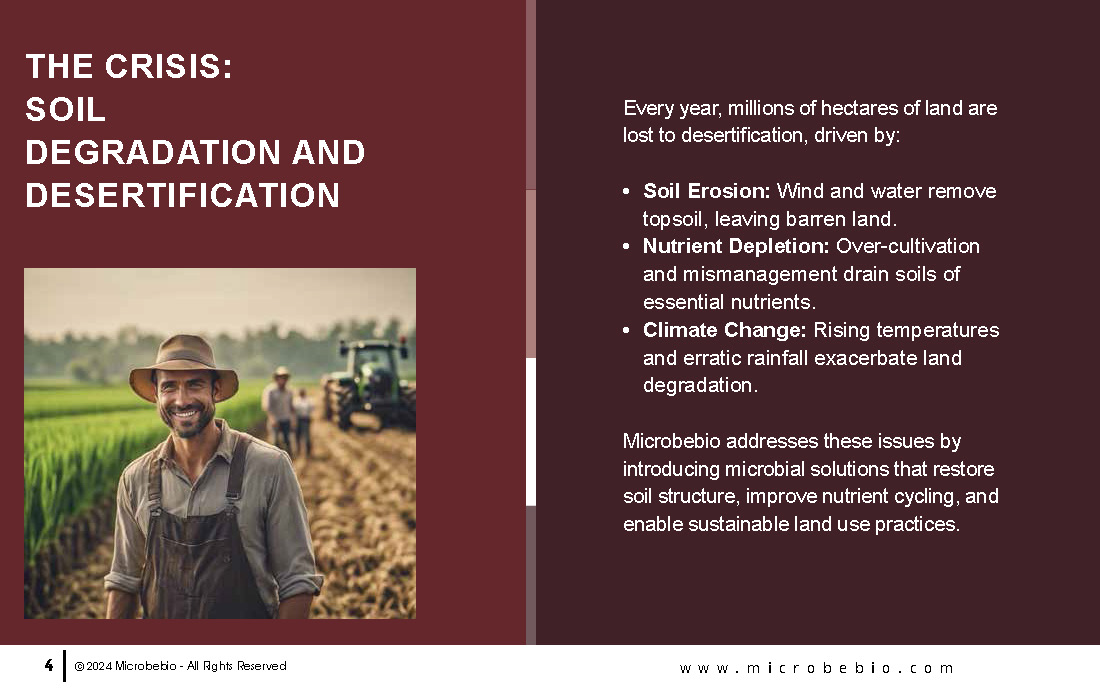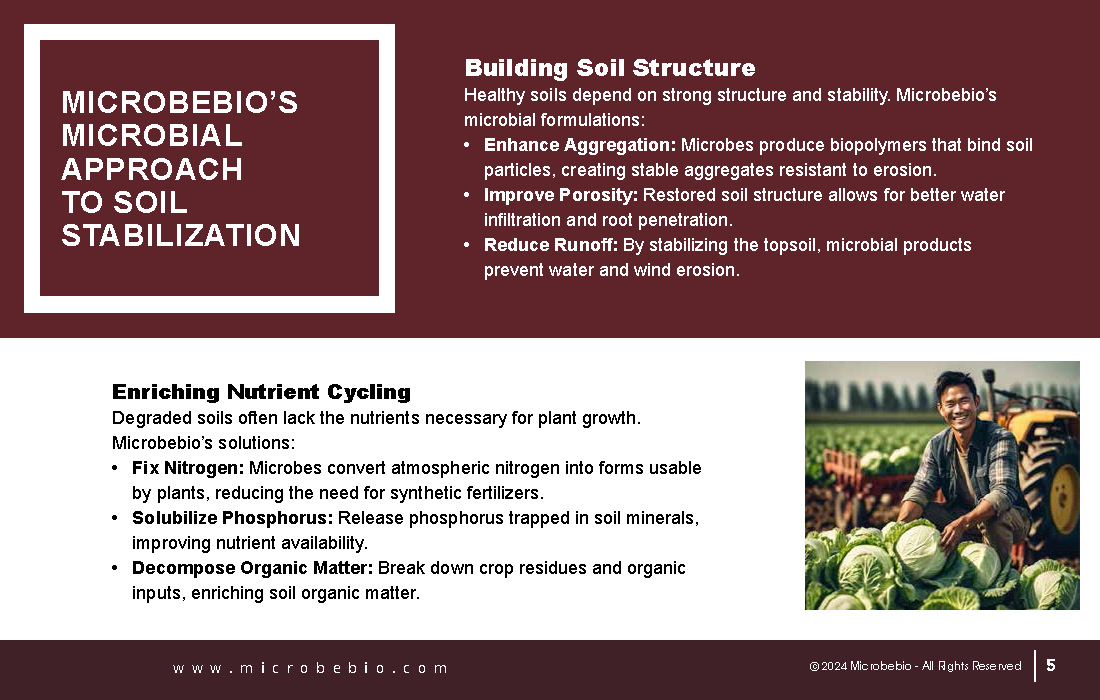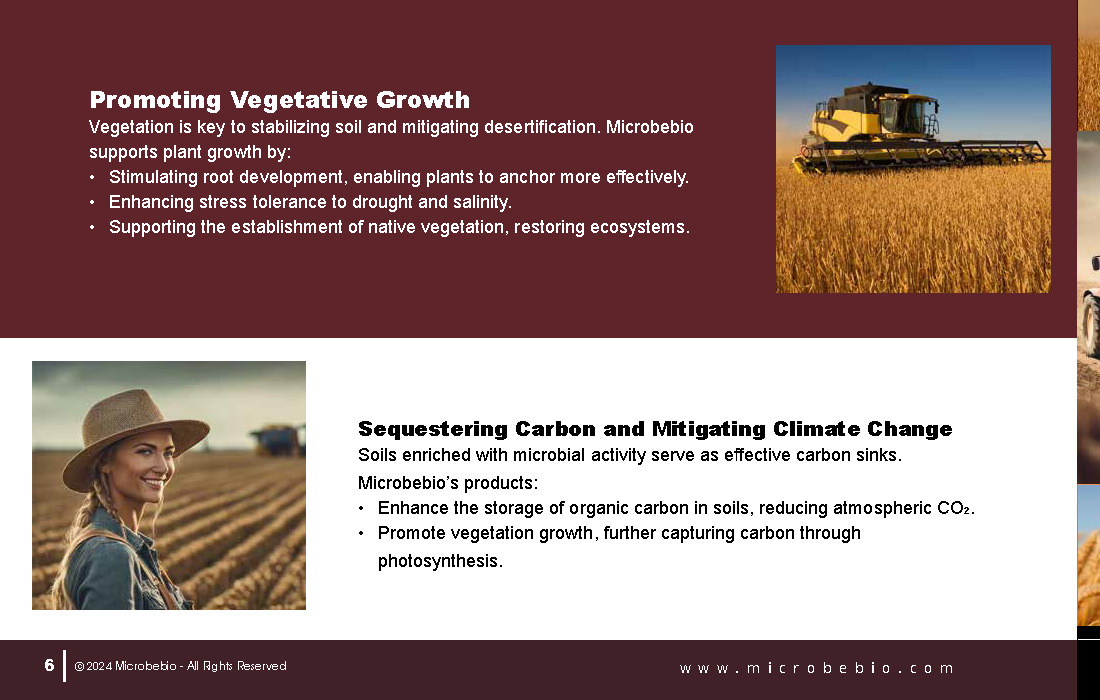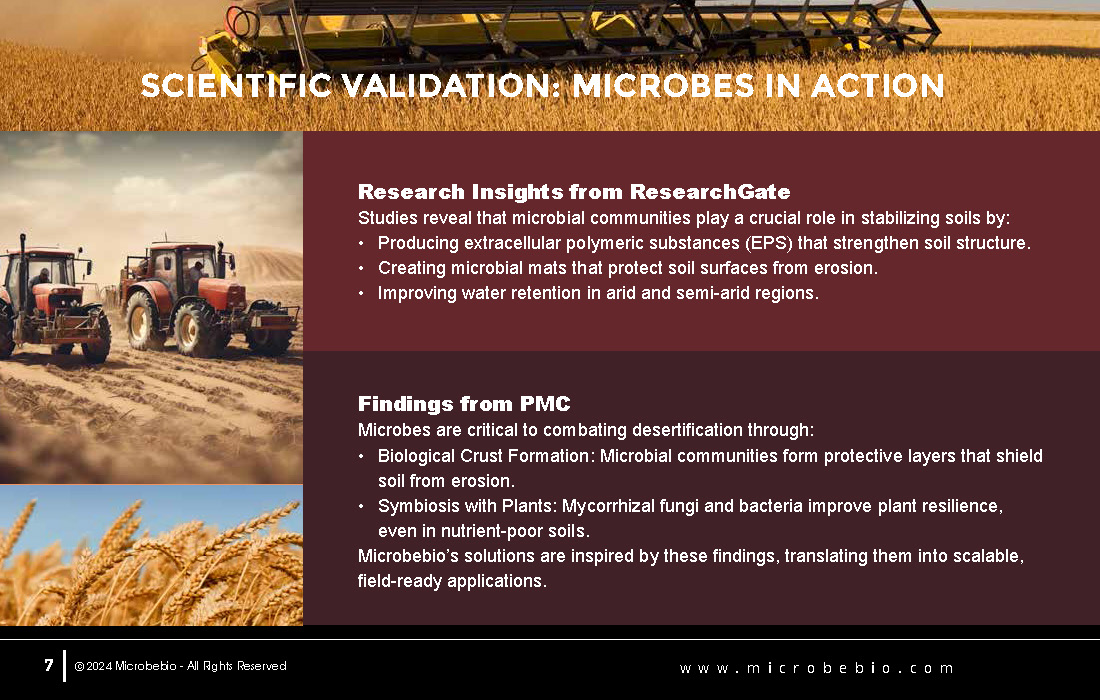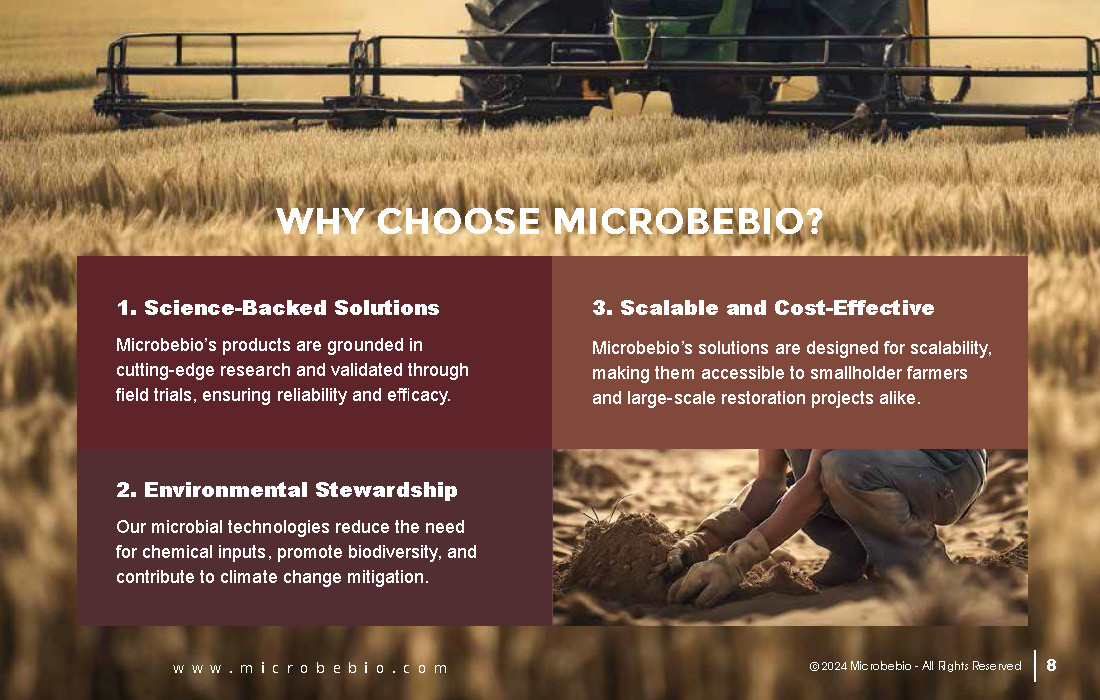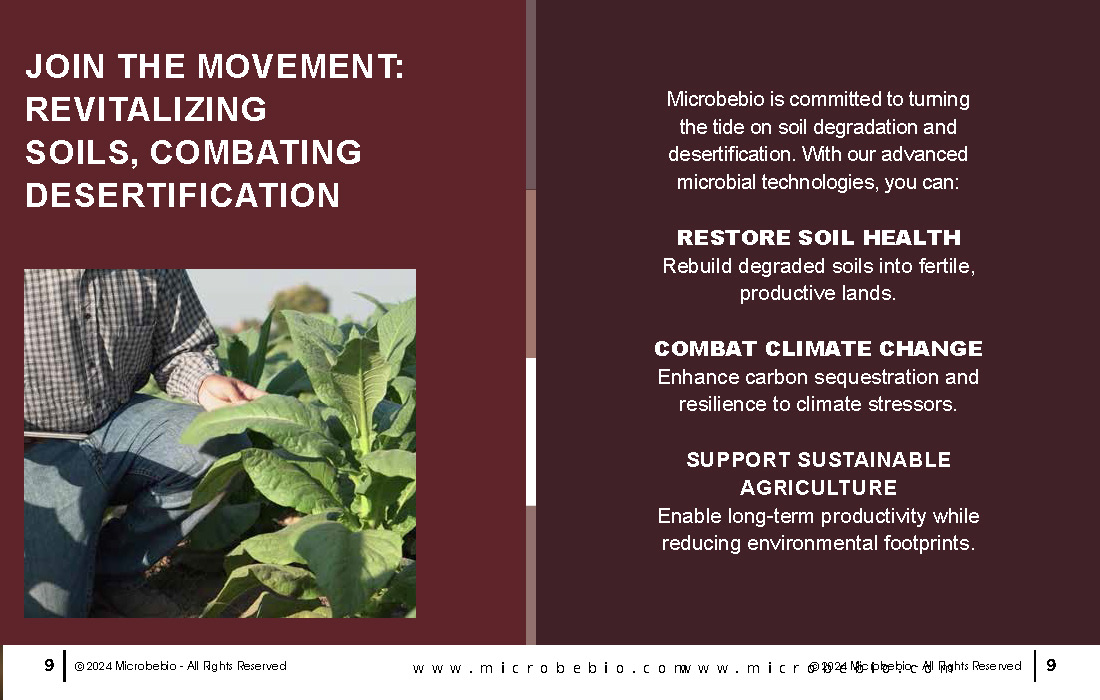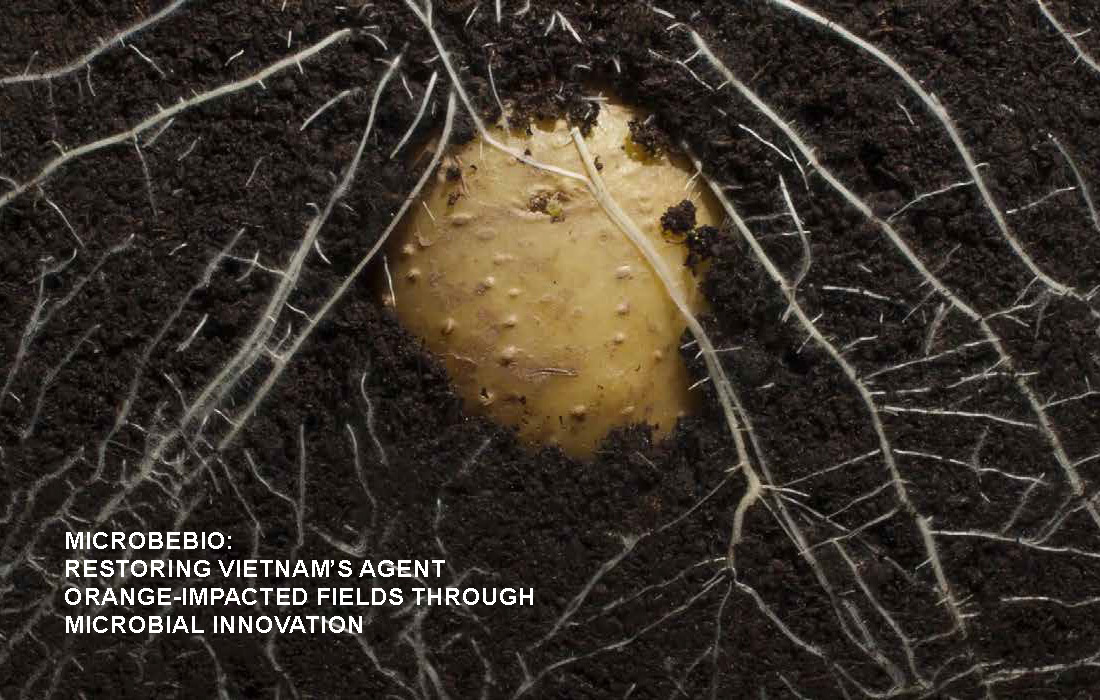Microbebio: Stabilizing Soils and Combating Desertification Through Microbial Innovations
Soil degradation and desertification are two of the most critical challenges of our time, threatening food security, biodiversity, and climate stability. With large swathes of arable land lost every year, it is imperative to develop innovative solutions that restore degraded soils and prevent desertification. Enter Microbebio, a leader in microbial technologies that harnesses the power of microbial communities to stabilize soils, enhance fertility, and build climate-resilient landscapes.
The role of microbial communities in soil stabilization and desertification mitigation. By leveraging these insights, Microbebio has developed proprietary products that integrate the science of soil microbes with practical, field-ready solutions.
The Crisis: Soil Degradation and Desertification
Every year, millions of hectares of land are lost to desertification, driven by:
- Soil Erosion: Wind and water remove topsoil, leaving barren land.
- Nutrient Depletion: Over-cultivation and mismanagement drain soils of essential nutrients.
- Climate Change: Rising temperatures and erratic rainfall exacerbate land degradation.
Microbebio addresses these issues by introducing microbial solutions that restore soil structure, improve nutrient cycling, and enable sustainable land use practices.
Microbebio’s Microbial Approach to Soil Stabilization
- Building Soil Structure
Healthy soils depend on strong structure and stability. Microbebio’s microbial formulations:
- Enhance Aggregation: Microbes produce biopolymers that bind soil particles, creating stable aggregates resistant to erosion.
- Improve Porosity: Restored soil structure allows for better water infiltration and root penetration.
- Reduce Runoff: By stabilizing the topsoil, microbial products prevent water and wind erosion.
- Enriching Nutrient Cycling
Degraded soils often lack the nutrients necessary for plant growth. Microbebio’s solutions:
- Fix Nitrogen: Microbes convert atmospheric nitrogen into forms usable by plants, reducing the need for synthetic fertilizers.
- Solubilize Phosphorus: Release phosphorus trapped in soil minerals, improving nutrient availability.
- Decompose Organic Matter: Break down crop residues and organic inputs, enriching soil organic matter.
- Promoting Vegetative Growth
Vegetation is key to stabilizing soil and mitigating desertification. Microbebio supports plant growth by:
- Stimulating root development, enabling plants to anchor more effectively.
- Enhancing stress toleranceto drought and salinity.
- Supporting the establishment of native vegetation, restoring ecosystems.
- Sequestering Carbon and Mitigating Climate Change
Soils enriched with microbial activity serve as effective carbon sinks. Microbebio’s products:
- Enhance the storage of organic carbon in soils, reducing atmospheric CO₂.
- Promote vegetation growth, further capturing carbon through photosynthesis.
Scientific Validation: Microbes in Action
Research Insights from ResearchGate
Studies reveal that microbial communities play a crucial role in stabilizing soils by:
- Producing extracellular polymeric substances (EPS) that strengthen soil structure.
- Creating microbial mats that protect soil surfaces from erosion.
- Improving water retention in arid and semi-arid regions.
Microbes are critical to combating desertification through:
- Biological Crust Formation: Microbial communities form protective layers that shield soil from erosion.
- Symbiosis with Plants: Mycorrhizal fungi and bacteria improve plant resilience, even in nutrient-poor soils.
Microbebio’s solutions are inspired by these findings, translating them into scalable, field-ready applications.
Real-World Applications: Microbebio in Action
- Reclaiming Arid Lands in Africa
Microbebio’s microbial formulations transformed 5,000 hectares of degraded land into productive farmland, reducing wind erosion by 60% and improving water retention by 40%.
- Stabilizing Soils
In sandy desert regions, Microbebio introduced microbial soil stabilizers, achieving:
- A 70% reduction in soil erosion.
- Successful establishment of native vegetation.
- Sustainable Farming
Microbebio’s products helped farmers restore soil fertility on degraded farmlands, increasing crop yields by 30% while reducing reliance on synthetic fertilizers.
Why Choose Microbebio?
- Science-Backed Solutions
Microbebio’s products are grounded in cutting-edge research and validated through field trials, ensuring reliability and efficacy.
- Environmental Stewardship
Our microbial technologies reduce the need for chemical inputs, promote biodiversity, and contribute to climate change mitigation.
- Scalable and Cost-Effective
Microbebio’s solutions are designed for scalability, making them accessible to smallholder farmers and large-scale restoration projects alike.
Join the Movement: Revitalizing Soils, Combating Desertification
Microbebio is committed to turning the tide on soil degradation and desertification. With our advanced microbial technologies, you can:
- Restore Soil Health: Rebuild degraded soils into fertile, productive lands.
- Combat Climate Change: Enhance carbon sequestration and resilience to climate stressors.
- Support Sustainable Agriculture: Enable long-term productivity while reducing environmental footprints.
Trending Hashtags
#Microbebio #SoilStabilization #DesertificationMitigation #SoilHealth #MicrobialInnovation #SustainableFarming #ClimateAction #ErosionControl #LandRestoration #EcoFarming #RegenerativeAgriculture
Join Microbebio in pioneering the future of sustainable soil management and land restoration. Together, we can cultivate a greener, more resilient planet.

